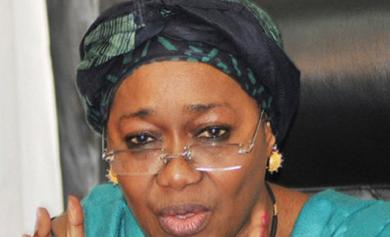
The Socio-Economic Rights and Accountability Project (SERAP) has petitioned the Economic and Financial Crimes Commission (EFCC), requesting it to urgently seek adequate damages and compensation from multinational corporations who have been found guilty in the US of committing foreign bribery in Nigeria.
In a petition dated August 2, 2011, and addressed to the EFCC chairman, Mrs. Farida Waziri, SERAP also mentioned some companies including Halliburton, Shell, Siemens, Willbros International, Snamprogetti Netherlands BV and ENI SpA etc.
The petition was signed by SEPAP’s executive director, Adetokunbo Mumuni, while a copy of the petition was made available to LEADERSHIP.
It also called on the anti-graft commission to take all necessary steps to effectively bring to justice the Nigerian officials complicit in such cases of bribery.
SERAP warned that failure by the Nigerian government to ensure that adequate damages were paid in proven cases of foreign bribery in the country, constituted a violation of the international legal rights of the deprived, and may itself constitute an international wrong.
The group said, “Many multinational corporations operating in Nigeria have paid several millions of dollars in bribes to Nigerian government officials and to some political parties. However, while huge payments have been made in settlements in the US, Germany and the UK, only a paltry amount has been paid in Nigeria.”
SERAP in a breakdown on how the settlements were made in other countries said, “While settlement by Halliburton Co and Kellogg Brown & Root LLC (KBR) in
Nigeria has amounted only to US $35 million, the corporation has paid over $727 million in settlement and damages in the US. Similarly, Technip SA has paid $338 million in settlement in the US, but has not paid any damages in Nigeria. Snamprogetti Netherlands BV and ENI SpA paid only $32.5 million in Nigeria, but has paid $365 million in the US.
“JGC Corp paid $28.5 million in Nigeria but paid $218.8 million in the US; MW Kellogg paid no damages in Nigeria, but has paid ?7 million in the UK. Also, Julius Berger Nigeria Plc has paid only $29.5 million in Nigeria, while Willbros International has paid over $41 million in the US but has made no payment in Nigeria. Panalpina paid $82 million in US, but no payment has been made in Nigeria. The Royal Dutch Shell Plc has paid only $10 million in Nigeria whereas it has paid $48.2 million in the US.”
The group further said, “Pride International paid $56.1 million in the US but made no payment in Nigeria; Noble Corp has paid $8.1 million in the US but no payment made in Nigeria; Tidewater Inc has paid $15.7 million in the US but no payment in Nigeria; Transocean Inc made payment of $20.6 million in the US but no payment made in Nigeria; Shell Nigerian Exploration and Production Co. Ltd paid $18 million in the US but no payment in Nigeria; and Siemens AG paid only $46 million in Nigeria, whereas it paid $800 million in the US and €796 million in Germany.”
The group argued that the disparity in payment of damages was “unfair and violates the fundamental provisions of the UN Convention against Corruption, which Nigeria has ratified. In particular, Article 34 obligates member states to address consequences of corruption and to consider any remedial action. And Article 35 provides that persons who have suffered damage as a result of an act of corruption have the right to adequate damages and compensation.”
It noted that Nigerians have suffered more the effects of foreign bribery, adding that foreign bribery had caused immense damage and devastation to the economy and institutions of governance, and directly undermined the full and effective enjoyment of internationally recognised human rights, especially economic, social and cultural rights by the citizens.
“Nigerians have not benefited from the large number of foreign bribery cases and investigations in OECD Convention countries that include allegations of bribery in Nigeria.
“Foreign bribery in the country has uneven consequences against the vulnerable groups of the society, including the poor, women and children, perpetrating and institutionalising discrimination. It also jeopardises the needs and wellbeing of future generations,” said SERAP.
The group, therefore, urged the EFCC to exert its mandate, power, and resources to ensure that the multinational corporations mentioned above pay adequate damages to the Nigerian people for the foreign bribery committed in the country, and to “ensure a transparent and accountable spending of any recovered damages.
The commission should also fully and transparently prosecute all Nigerian public officials complicit in any cases of bribery by multinational corporations in the country.”

